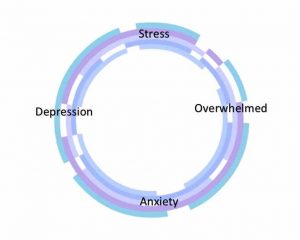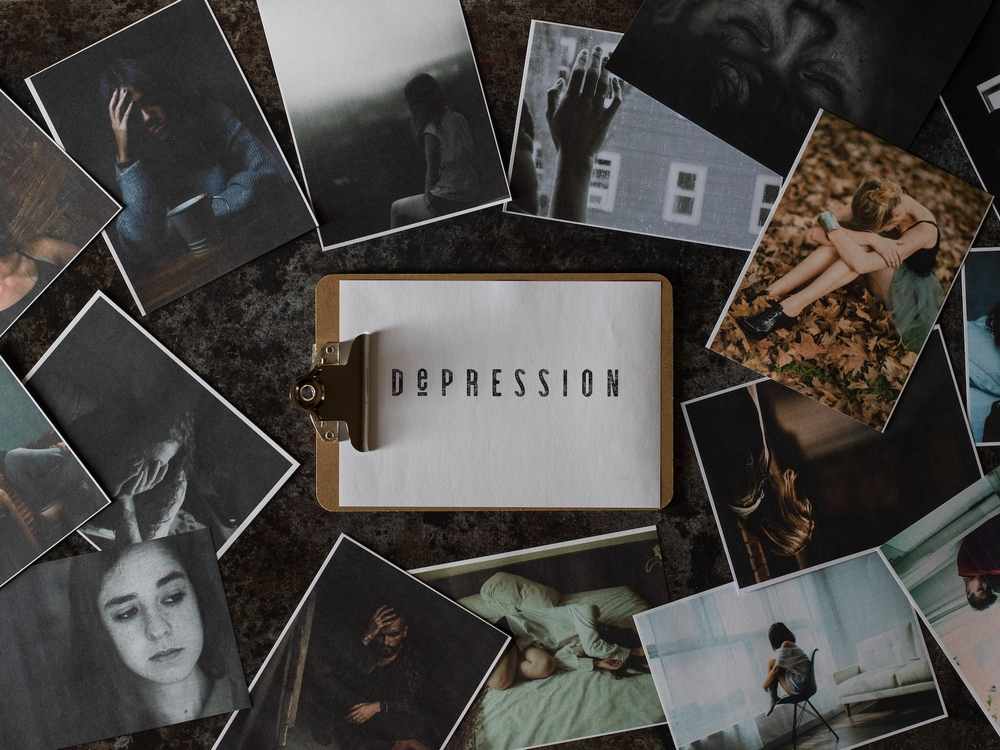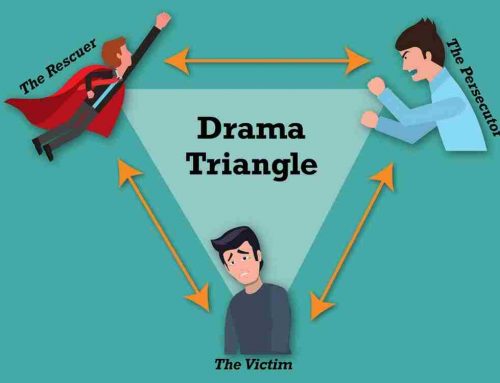HELP! I am overwhelmed, anxious, and want to flee from my circumstances!
The period from October to December is very challenging for most people and too often people have “end of the year/life” feelings of being overly anxious and desperate.
According to a 2021 survey conducted by the American Psychological Association, 60% of the participants reported feelings of being overwhelmed by several issues, especially in the first and last part of a year.
Stress is a “silent killer”. It doesn’t discriminate but impacts everyone, regardless of age, gender, race, and environment.
A common occurrence that takes place is that too much stress over time escalates into anxiety. Anxiety affects everyone differently and can be brought on by different situations or experiences. Everyone perceives situations differently and therefore the body’s response to stress is unique. Our body’s natural reaction is to perceive the danger, then the amygdala in our brain activates this fight-or-flight response without us being aware of it. When that part of your brain senses danger, it signals your brain to pump stress hormones, preparing your body to either fight for survival or flee to safety. The first question is how one manages your body’s response to stress.
It is important to figure out the root causes in facing, addressing, and overcoming the feeling of being overwhelmed.
-
Are you?
Worried about your teenager’s performance at school and ability to pass his/her examination?
Worried about your child’s mental health and are to seeing warning signs of depression?

- Sleeping disturbance (sleeping too much or too little)
- Feelings of sadness, hopelessness, and social isolation
- Declining school performance and lack of motivation
- Changes in weight and appetite
- Highly irritated, frustrated, agitation and abnormal anger forward him/herself or others
- Feelings of anxiety and mention of being bullied at school.
There is always hope! Symptoms of teenage depression need urgent attention. I am just a phone call away from professional therapeutic intervention and mental health care. (Also read the notes about depression at the end of the article)
Speak to me about study methods, and relaxation techniques and learn how to effectively prepare for examinations to be successful.
2. Do you feel bullied at work or by your partner?
- Do you experience the feeling of never “being good enough” and being a “failure”?
- Do you feel that the bully overpowers and controls you?
- Are you bullied into too many work responsibilities and into reaching unrealistic targets?
- Do you feel powerless and trapped in a vicious circle that you don’t know how to escape from?
- Do you realize that the effect of emotional bullying is a long-term problem and more of a struggle to overcome than physical bullying?

Reaching out for support! You don’t need to feel like a victim. With the necessary help, you can overcome the victim’s mindset and become a champion!
3. Do you experience financial challenges?
- Some common ones include potential job loss, a wrong decision, and a lack of personal finance education. Your childhood beliefs about money can impact your choices about money and spending.
- Have you lost your job and are you struggling to make ends meet?
- Have you reached a financial dead end and cannot see any creative ways to overcome your financial struggle?
Psychological support can help you through difficult financial times by explaining positive alternatives. A healthy mind is a creative mind.
4. Is your marriage or love relationship falling apart?
Is your marriage or love relationship falling apart?
- Does it feel as if you and your partner are drifting apart?
- The various phases of a marriage relationship can be stressful (newborn baby, teenagers, discipline disagreement, aging, and communication difficulties)
Some couples see marriage counseling as a last resort.
Don’t wait too long before reaching out to explore couples therapy and restore your marriage relationship.
5. Have you experienced a traumatic event?

- It is easy to struggle with Post Traumatic Stress Disorder. If you do not pay attention to resolving trauma and attend trauma debriefing after a traumatic event you can easily start to struggle with the symptoms of Post-Traumatic Stress Disorder (PTSD)
- Trauma should never become such an everyday occurrence in our lives that we do not seek professional support for our mental health. We experience hijackings, armed robbery, burglaries (where our personal space is invaded), car accidents, and the unnatural death of loved ones.
It is important to come for trauma counseling to prevent suffering from Post-Traumatic Stress Disorder that impacts negatively your quality of life.
6. DEPRESSION IS NOT A SIGN OF WEAKNESS; IT IS JUST PROOF THAT YOU TRIED TOO LONG TO COPE ON YOUR OWN AND THAT YOUR COPING MECHANISMS ARE FAILING YOU.
BE ON THE LOOKOUT FOR THE FOLLOWING COMMON SYMPTOMS OF DEPRESSION
- Depression affects a person’s mood (feeling sad, highly irritated, moody, having a negative outlook on life, feeling worthless, and having low self-esteem)
- It impacts the person’s behaviour (loss of interest in social activities that were previously enjoyed, isolates him or herself, and presents with psychomotor agitation)
- It causes struggle with sleeping disturbances (difficulty falling asleep and does not sleep enough, sleeping too much to escape reality, or experiencing nightmares)
- A loss of appetite or the gaining of weight, due to an emotional eating habit may also be symptoms of a depressed mood)
- Physically a person might experience muscle spasms, feels nauseous, have stomach or chest pains, and feels “on the edge”.
- A person might have trouble concentrating, have a negative thought pattern, find it difficult to make decisions, and in serious cases have thoughts of death or suicide.
DO SOMETHING ABOUT IT – SEEK PROFESSIONAL SUPPORT!
Ignoring or denying your feelings of being overwhelmed is personally destructive. It won’t go away but will bubble under the surface until you have no choice but to face your feelings and deal with them. Rather immediately seek professional mental health care before you find yourself in a deep dark hole that will be difficult to get out of

People with depression are especially at risk of committing suicide. If a family member discusses suicide in general or expresses suicidal thoughts, don’t ignore the “cry for help”, but seek immediate professional advice. I am just a phone call away. Effective treatments are available. Do not ignore any signals, rather overreact than underreact and ask for help. Let the depressed person know that his or her life is very important and that they are valued.
Note: Dealing with depression in the family can be very challenging, but it is also an opportunity for the family members to get closer and show up and be there for one another.
If you have any queries, are keen on finding out more information, or are interested in making an appointment to see Dr Leonora de Villiers, please do not hesitate to contact her.
082 497 3765



